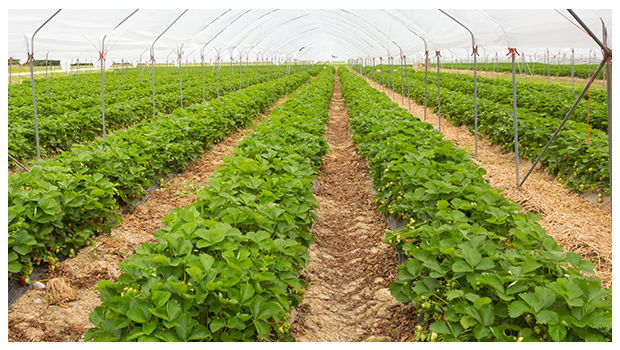5 reasons to switch to organic farming Article
5 reasons to switch to organic farming
In the modern agricultural landscape, where rapid technological advancements and industrial farming techniques dominate, the call to return to more traditional, sustainable methods is growing louder. Organic farming, once considered a niche practice, is now recognised as a viable and beneficial approach to agriculture. If you’re a farmer, you may wonder why you should consider making the switch to organic farming. Is it worth the effort? What benefits does it offer? Let’s explore five compelling reasons that make organic farming not just a trend, but a smart and sustainable choice for the future.
1) A Pesticide-Free Approach: Protecting Health and the Environment
Using pesticides will allow you to escape the cycle of constantly buying these artificial chemicals which not only affect the nutritional value of the crop but also put the farmers health at risk. Moreover, fewer pesticides lead to healthier soil and ecosystems, which can enhance crop resilience and yield over time. Organic farming practices allow you to simultaneously protect your and your families health as well as appeal to a larger mass who are willing to spend the extra bucks for organically grown produce.
2) Cost-Effective Farming: Reducing Expenses and Maximising Profits
Organic farming mainly relies on reusing old manure and things readily available, that are mostly natural, to grow crops. This ensures that the farmers are under constant exposure to chemicals and have a safer way to grow produce and because fertilisers and other things are made organically using manure or compost that is readily available at the farm, no additional costs need to be borne by the farmer to purchase fertilisers. Inevitably this will aid them reduce costs of growing crops, increasing profit margins.
3) Environmental Sustainability: Mitigating Climate Change and Preserving Ecosystems
It is no surprise that carbon emissions are rupturing the ozone layer and leading to various calamities due increasing temperatures and global warming. Fertilisers, pesticides and other chemicals are also undoubtedly a contributor to the same as they lead to leaching and eutrophication, which pollute even the water body around meaning mass contamination can take place. However, organic farming practices prioritise carbon sequestration in the soil, which aids alleviate the damage done to the ozone layer and climate change.
4) Nourishing the Soil: Enhancing Soil Health and Crop Resilience
Organic farming retrains from interfering with the soils ecosystem as no chemicals are added to it such as fertilisers. This improves the structure of the soil and allows it to retain more water. Alongside that, the microbial activity in the soil also increases allowing the crops to flourish. Unquestionably this results in better crop yield and eliminates the stress that farmers have as they constantly worry about the soil health and how to nourish it more in order to sustain optimum crop growth.
5) Healthy Livestock: Raising Animals Ethically and Sustainably
It is very common to have livestock on the farm alongside crops, especially in India, and they are free to roam around the farm. Normally, using a rather conventional method of farming would put their lives at risk as they are constantly exposed to such an environment. Whereas with organic farming, that isn’t the case. They aren’t around such harmful chemicals 24/7 which can potentially hamper with their natural body processes and intern be harmful to us as well in various methods, for example when we consume cow / buffalo milk, or when we consume chicken eggs.
In conclusion, organic farming offers a multitude of benefits ranging from healthy soils to healthier livestock. By switching to organic farming you are not only reducing the effect of climate change and reducing the carbon footprint, but are also producing healthier crops. Doing something late is better than doing nothing at all! It is high time and we need to take immediate action. It is time to hop on the wagon. Whether you are a farmer or a consumer, spreading awareness and implementing organic practices are essential in bringing change. We need to take action and we need to take action today!
Author,
Shivani Vinda
Content Writer at Bhumi Suktam Initiative
